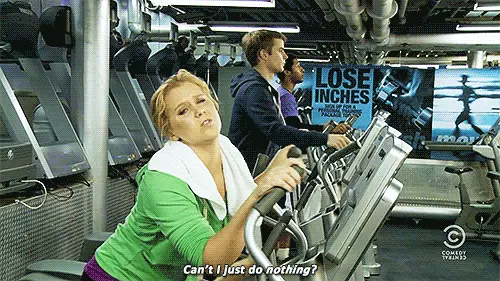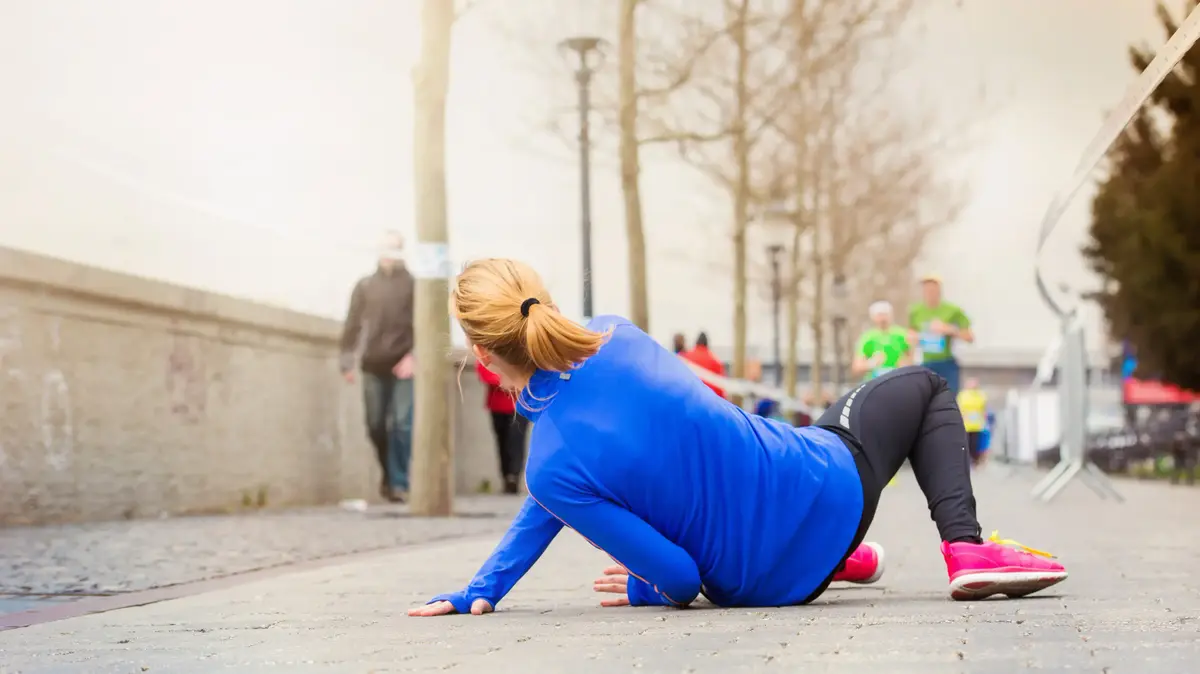health
capacity
Why do we hate exercising so much?
You may enjoy the feeling you have after a workout, the music you hear during it or the compliments you get thanks to it - but while your body is working, your brain is just suffering.
Why is this happening and how can this bug be bypassed?
Tags
Training
capacity
Exercise
Maor Moiger
Tuesday, 13 April 2021, 07:40
Share on Facebook
Share on WhatsApp
Share on general
Share on general
Share on Twitter
Share on Email
0 comments
You can enjoy the feeling after, the compliments on the results - but during training?
The brain only suffers.
A woman in a plank (Photo: ShutterStock)
"All animals are meant to be as lazy as possible," writes Daniel Lieberman, a human evolution expert at the prestigious Harvard University.
In his book, Exercised: Why Something We Never Evolved to Do Is Healthy and Rewarding, he explains why exercise is one of the healthiest things we can do - but in the same breath details why we hate it so much and more - why we were never designed to lift weights at the institute Fitness.
Today, no one has any doubt that exercise is important and meaningful - but no matter how many studies we read, how many experts recommend it and how much jealousy fills us when we look at those who do manage to stick to it - something within us simply will not allow us to stick to a training routine.
More on Walla!
This lifestyle reduces the risk of two leading causes of death
To the full article
The reason for this, according to Lieberman, is that throughout most of the years of existence of the human race - energy was a commodity that was not as available and accessible as it is today.
The main source of our energy is the food we consume - something that in the past people had to fight for and work much harder for.
And when they had already obtained food - they had to use the energy he provided them for survival missions - like lighting a fire, finding more food, building shelter and taking care of the children.
When there is no important reason for survival, our brain is programmed to want to rest, eat and accumulate strength.
Woman lying on a tanning bed (Photo: Reuters, Reuters)
Beyond that, he explains, when there is really no important survival reason to waste energy - our brain is programmed to want to rest, eat as much as possible and accumulate its forces for the really important goals.
"Exercise requires overcoming deep instincts that are rooted in us"
Gyms, weights and strength training are a pretty new invention of the modern age.
In the past, people did not have to exercise because they would do it out of necessity anyway - to fetch water, build houses for themselves, fight or flee for their lives.
Without these big goals, exercise just feels pointless, even if we logically understand its importance.
"Exercise, despite its many benefits, requires us to bypass deep and natural instincts inherent in us," Lieberman explains.
However, he says, this trait that helped us survive for hundreds of thousands of years of evolution, now puts us in real danger.
One notable example of this is astronauts in space, who can lose up to 20 percent of their muscle mass in just two weeks because their brain does not instinctively move the body when it does not feel there is a clear reason to do so.
Going out for training sometimes feels like an impossible task.
A man runs on the promenade in Tel Aviv, January 2021 (Photo: Reuven Castro)
Today, it is clear that inactivity is far more dangerous than excess activity.
In his book, Lieberman cites a study he conducted, showing that more active people enjoy a 30 percent reduced risk of premature death.
These findings join a series of other studies that have reached similar conclusions.
However, even after reading a lot of such studies and really internalizing the benefits of exercise, still, in the moment of truth, when required to wear sportswear and go out for a workout - sometimes it just feels like an impossible task.
More on Walla!
This little thing will make you feel much better during the day
Mid-life: Why does everyone go through a crisis at 40?
This way you will be able to overcome the pain in the hip joint and avoid surgery
So how do you develop motivation to exercise?
Lieberman as such has extensively studied human evolution, with an emphasis on what has made people motivate themselves and maintain physical fitness throughout history.
According to him, not only the survival instinct makes us move - but also a host of other factors that are important to consider.
Human history shows that people tend to move more not to worry about their health - but rather for social and religious reasons.
For example, we can dance until our legs collapse at a party with good music and friends we have fun with.
We can play long hours with people we just have to prove to them that we are better than them.
People over the years have gone for months and even years to get to places that are sacred to them, or kill thousands of people on crusades, and when we find a partner with whom the connection is great - we can spend an entire night with them without getting tired or lazy.
Feel that you are punishing yourself and also paying a subscription fee for it?
Gym (Photo: shutterstock)
"In my view, a lot of animals are driven by deep instincts that call for them to move - many times to play and connect with others - while training just to develop physiological abilities - is a human invention that is unnatural for most of us."
Your brain is just waiting for it to end
Lieberman emphasizes that exercise just for the sake of activity is never really fun.
You may enjoy the feeling you have after it, the music in the background, the body developing or the compliments you receive - but as you lift weights, your mind suffers and just waits for it to end.
Therefore, he recommends that those who want to find a training routine that they can stick to - go back to their roots and think about how to add more pleasure to their training.
Instead of doing the same exercises at the institute over and over until you get tired - take your friends and go discover new places in nature, play ball, dance into the night, or anything else that will not feel like a punishment - but like something you really expect and enjoy.
This instinct of ours seems to play, discover and produce meaningful social connections - surpassing all laziness and lack of motivation.
And this is exactly the way to allow the brain to finally enjoy the gymnastics - instead of feeling that it is punishing itself and also being required to pay a subscription fee for it.
Share on Facebook
Share on WhatsApp
Share on general
Share on general
Share on Twitter
Share on Email
0 comments









